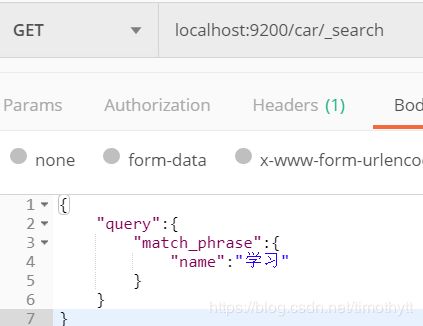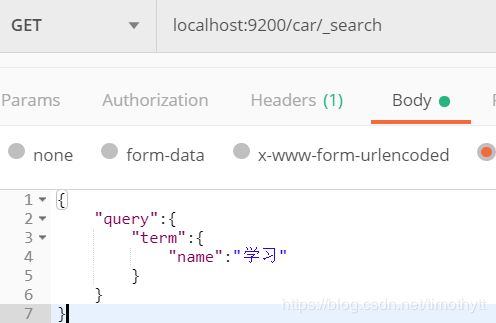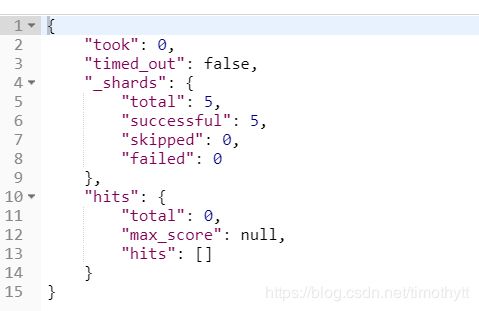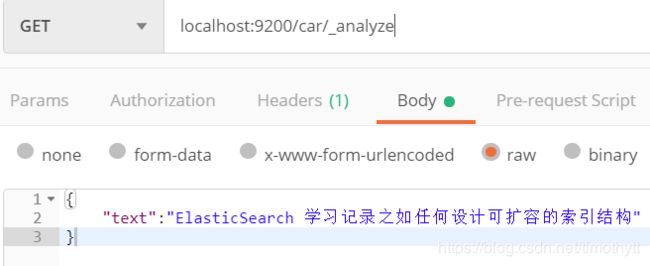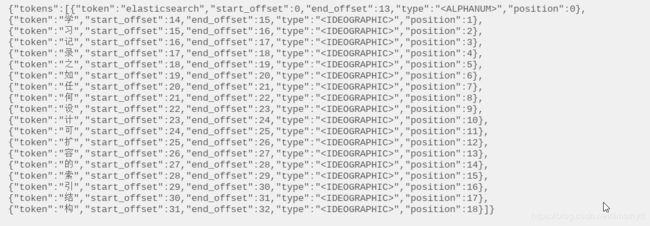- 使用scorecardpy库计算woe分箱和iv值
亲持红叶
机器学习风控相关算法人工智能机器学习
woe分箱_iv值计算基于scorecardpy库,乳腺癌数据集importpandasaspdimportnumpyasnpfromsklearn.datasetsimportload_breast_cancerimportscorecardpyasscfromtqdmimportnotebookcancer=load_breast_cancer()df=pd.DataFrame(cancer.
- 在PyTorch框架上训练ImageNet时,Dataloader加载速度慢怎么解决?
cda2024
pytorch人工智能python
在深度学习领域,PyTorch因其灵活性和易用性而受到广泛欢迎。然而,在实际应用中,特别是在处理大规模数据集如ImageNet时,Dataloader的加载速度往往成为瓶颈。本文将深入探讨这一问题,并提供多种解决方案,帮助你在PyTorch框架上高效地训练ImageNet。1.问题背景ImageNet是一个包含超过1400万张图像的大规模数据集,被广泛用于图像分类任务的研究。在PyTorch中,D
- OpenBayes 一周速览|微软 Phi-4 发布,降低更多成本实现高效推理;Terra 时空数据集上线
公共资源速递5个数据集:Terra多模态时空数据集ChineseCouplets中文对联数据集AqueousSolubility无机化合物数据集HumanLikeDPODataset大模型对话微调数据集SentimentandEmotionAnalysisDataset情感情绪分析数据集4个教程:一键部署Phi-4Docling:文档解析神器一键部署QVQ-72B-preview铅笔素描风格文生图
- 数值存储(一)-CPU大端和小端模式详解
poclist
osdev
大端与小端在嵌入式开发中,大端(Big-endian)和小端(Little-endian)是一个很重要的概念。MSB与LSB最高有效位(MSB)指二进制中最高值的比特。在16比特的数字音频中,其第1个比特便对16bit的字的数值有最大的影响。例如,在十进制的15,389这一数字中,相当于万数那1行(1)的数字便对数值的影响最大。比较与之相反的“最低有效位”(LSB)。LSB(LeastSignif
- FFmpeg 元数据
yerennuo
ffmpegffmpeg
文章目录元数据代码实例,查看元数据元数据在处理音视频文件时,了解其元数据信息是非常重要的。元数据是描述文件内容和属性的数据,包括了诸如标题、作者、时长、分辨率等信息。使用ACDictonaryAPI,可以查看元数据或者将元数据写入到AVFormatContext,AVStream,AVChapter和AVProgram结构体中,元数据保存在它们Metadata字段中。元数据是由一个键值对组成的。与
- MySQL 很重要的库 - 信息字典
shenghuiping2001
网络安全mysqladbandroidinformation
在做owaspSQL注入的时候,有个很重要的库,那就是信息库:这个库就是:information_schema;(准确的说,数据字典)mysql>showdatabases;+--------------------+|Database|+--------------------+|information_schema|下面区这个库里面看看table:mysql>select*fromTABLES
- MySQL备份还原(多种不同的方式备份还原)
obboda
数据库
一、mysqldump+binlog实现完全+增量备份1)素材准备:mysql>createdatabaseschool;QueryOK,1rowaffected(0.01sec)mysql>useschoolDatabasechangedmysql>CREATETABLE`Student`(->`Sno`int(10)NOTNULLCOMMENT'学号',`Sname`varchar(16)NO
- Java灵魂拷问13个为什么,你都会哪些?
大家好,我是V哥。今天看了阿里云开发者社区关于Java的灵魂拷问,一线大厂在用Java时,都会考虑哪些问题呢,对于工作多年,又没有大厂经历的小伙伴不妨看看,V哥总结的这13个为什么,你都会哪些?先赞后看,绝不摆烂。1.为什么禁止使用BigDecimal的equals方法做等值比较?BigDecimal的equals方法在等值比较时存在一些问题,通常不建议直接使用它来判断数值的相等性。下面是主要原因
- C链表的一些基础知识
weixin_58038206
c语言链表开发语言
一、链表的基本概念链表是一种常见的线性数据结构,它由一系列节点组成,每个节点包含数据部分和指向下一个节点的指针(单链表情况)。通过指针将各个节点连接起来,与数组不同,链表在内存中的存储不是连续的,其优点是可以灵活地进行插入、删除操作,无需像数组那样移动大量元素。二、单链表的实现定义节点结构体://定义单链表节点结构体typedefstructListNode{intdata;//数据域,这里以整型
- 学习笔记:UART(二)
weixin_58038206
学习笔记
设计一包数据可以参考这样设计intfputc(intch,FILE*f){usart_data_transmit(g_uartHwInfo.uartNo,(uint8_t)ch);while(RESET==usart_flag_get(g_uartHwInfo.uartNo,USART_FLAG_TBE));returnch;}这是重定向,然后就可以使用printf打印调试。voidUSART0_
- 让你的 PHP 代码飞起来:内存优化技巧详解
程序员阿凡提
PHP实战教程php开发语言内存优化
PHP应用的内存优化对于构建高性能和可扩展的系统至关重要。以下是PHP内存优化的一些关键策略:1、使用unset()函数释放内存unset()该函数用于提醒不再使用的变量,从而释放其占用的内存空间。对于大型数据库或对象,在不再需要时及时使用unset()可以有效避免内存占用。$data = [1, 2, 3]; // 示例数据unset($data); // 使用后释放内存注意:unset()在不
- 逐梦华为 HCIA-Datacom:从理论到实战的深度探索之旅
芜湖,皇冠
学习
逐梦华为HCIA-Datacom:从理论到实战的深度探索之旅在当今数字化浪潮汹涌澎湃的时代,网络通信技术宛如基石般撑起了全球信息交互的大厦。怀揣着对前沿网络技术的热忱与求知欲,我毅然投身于华为HCIA-Datacom的学习征程。这段学习之旅,绝非康庄大道,其间布满荆棘、充满挑战,却也处处闪烁着知识的璀璨光芒,每攻克一个难点,都如同点亮一盏照亮前行之路的明灯。如今,我愿将这段宝贵经历倾囊分享,希望能
- super顺序表
守正出琦
一个月从数据结构小白到大师数据结构c语言
增删查改1顺序表1.1静态数据表开少了不够用,开多了浪费1.2动态顺序表顺序表缺陷#define_CRT_SECURE_NO_WARNINGS1#include"seqlist.h"voidSLInit(SL*ps){assert(ps);ps->a=(SLDataType*)malloc(sizeof(SLDataType)*int_capacity);if(ps->a==NULL){perro
- yoloV8训练标注数据生成模型
安陆米香
目标检测计算机视觉YOLO目标检测计算机视觉
1、标注工具:vott2、yoloV82.1仓库地址https://github.com/ultralytics/ultralytics2.2参考教程文档文档地址:https://github.com/ultralytics/ultralytics/wiki3、数据集|标注数据格式3.1数据集格式【coco128】3.1.1下载地址:https://cocodataset.org/#downloa
- YOLOv10-1.1部分代码阅读笔记-loaders.py
红色的山茶花
YOLO笔记深度学习
loaders.pyultralytics\data\loaders.py目录loaders.py1.所需的库和模块2.classSourceTypes:3.classLoadStreams:4.classLoadScreenshots:5.classLoadImagesAndVideos:6.classLoadPilAndNumpy:7.classLoadTensor:8.defautocast
- 低延迟更灵活,开发者怎能不爱分布式云
为了努力部署和管理复杂的数据密集型应用程序,从而满足客户不断变化的需求,我们需要一种方法让这些应用程序和工作负载更接近位于全球任意一个角落的客户。过去多年来,云计算满足了这种需求。不过这就够了吗?适合过去的东西,就一定适合将来吗?未必!根据重点关注开发者想法的研究公司SlashData的一项新研究,全球开发者正越来越多地将分布式云计算视为保障最佳客户体验的方法。根据Akamai的委托,这项名为“开
- vue2开发:el-select多选框点击后关闭下拉
效果:代码:vue2开发:el-select多选框点击后关闭下拉*{margin:0;padding:0;}#app{padding:50px;}el-select多选框点击后不关闭下拉el-select多选框点击后关闭下拉newVue({el:'#app',data(){return{inviteStoreStatus:null,inviteStoreStatus1:null,inviteSto
- torch.utils.data.Dataset()和torch.utils.data.DataLoader()
我叫罗泽南
深度学习python
torch.utils.data.Dataset()和torch.utils.data.DataLoader()是Pytorch中处理数据集和批量加载数据的重要工具。下面将详细介绍它们的作用、用法,并通过一个简单的例子来演示如何使用它们。torch.utils.data.Dataset()Dataset是Pytorch数据加载的基类,用于表示一个数据集。用户可以继承Dataset类并实现其两个方法
- 04、Redis从入门到放弃 之 数据持久化RDB和AOF
跳跳的向阳花
Redisredisbootstrap数据库
Redis从入门到放弃之数据持久化RDB和AOFRedis强大的功能很大部分是由于他把数据缓存在内存中,为了使Redis在重启的时候,数据不丢失,就需要已某种方式把数据持久化到磁盘中。Redis持久化的方式有俩种,RDB和AOF。RDB==>RedisDatabaseAOF====>AppendOnlyFile1、RDB①、RDB是以快照的方式对内存中的数据进行存储。即在“”制定的时间间隔内“”将
- Redis 持久化机制:RDB 和 AOF
maply
Redisredis数据库缓存RDBAOF
Redis持久化机制:RDB和AOFRedis主要提供了两种持久化方式:**RDB(RedisDatabase)**和AOF(Append-OnlyFile)。它们各自的实现原理、优缺点以及适用场景如下。1.RDB(RedisDatabase)原理1.1RDB机制RDB采用快照(Snapshotting)方式定期将内存中的数据持久化到磁盘。Redis会在特定时间点创建数据的二进制快照并存储到.rd
- 一句话就能回答的前端面试题(2024年10月最新版)
小姐姐呀~
前端javascriptvue
1、v-if和v-show的区别相同点:v-if和v-show都可以控制dom元素的展示和隐藏不同点:v-if的显示隐藏是将dom元素整个添加或删除而v-show的隐藏是为该元素添加CSS样式display:none,dom元素还在一般进入页面不需要频繁显示或隐藏就用v-if2、data()为什么是一个函数为了防止多个组件实例对象共用一个data,产生数据污染3、什么是闭包闭包就是内部函数定义一个
- 分布式系统理论基础二-CAP
王知无(import_bigdata)
GitHub:https://github.com/wangzhiwubigdata/God-Of-BigData关注公众号,内推,面试,资源下载,关注更多大数据技术~大数据成神之路~预计更新500+篇文章,已经更新50+篇~引言CAP是分布式系统、特别是分布式存储领域中被讨论最多的理论,“什么是CAP定理?”在Quora分布式系统分类下排名FAQ的No.1。CAP在程序员中也有较广的普及,它不仅
- 一个.NET开源、性能优异的Excel数据读取库
dotNET跨平台
excel
项目介绍Sylvan.Data.Excel是一个开源、免费、跨平台的.NET库,专注于读取和写入Excel数据文件。支持多种文件格式,并提供高效的数据访问和数据绑定功能。该库在.NET生态系统中是读取Excel数据文件的最快且内存分配最低的库之一。使用场景适用于需要从Excel文件中读取数据并进行进一步处理(如数据分析、报告生成等)的应用程序。适用于需要将数据从数据库或其他数据源导出到Excel文
- Apache Hive
_从头再来_
大数据
一、ApacheHive简介官方网址:https://hive.apache.org/TheApacheHive™datawarehousesoftwarefacilitatesreading,writing,andmanaginglargedatasetsresidingindistributedstorageusingSQL.Structurecanbeprojectedontodataalr
- Java:读取本地文件
Monly21
Javajava开发语言
/***读取本地JSON文件**@throwsIOException*/publicstaticvoidreadLocalFile()throwsIOException{Filefile=newFile("D:\\repo\\java_base_test\\data.json");FileReaderfileReader=newFileReader(file);BufferedReaderbuff
- python os.path.basename()方法
Arthur-Ji
python
返回path最后的文件名。如果path以/或\结尾,那么就会返回空值。即os.path.split(path)的第二个元素。?12345>>>importos>>>path='/Users/beazley/Data/data.csv'>>>#Getthelastcomponentofthepath>>>os.path.basename(path)'data.csv'
- 生命周期函数——created、onload、mounted、updated的执行顺序
编程星空
前端javascriptvue.js
created和onload是非常重要的生命周期函数,涉及到组件初始化和数据绑定的顺序。created:(1)created是在Vue实例创建完成后立即被执行的。(2)在created中我们可以访问到组件的数据和方法,并进行一些初始化操作。此时的this指向VueComponent(其中包含所有的组件数据和方法)(3)通常我们会在created函数中发送请求获取数据,并将其存储在组件的data中。
- 基于深度学习的推荐系统构建:Movielens 数据集
fresh的转码之路
深度学习人工智能机器学习推荐算法
基于深度学习的推荐系统构建:Movielens数据集依赖环境代码语言:python3.11.5开发平台:pycharmtensorflow版本:2.18.0MovieLen1M数据及简介MovieLens1M数据集包含包含6000个用户在近4000部电影上的100万条评分,也包括电影元数据信息和用户属性信息。下载地址为:http://files.grouplens.org/datasets/mov
- 网口工业相机丢包根因及排查方法
爱兔子的萝卜
海康工业相机相机数码相机
网口工业相机丢包根因及排查方法文章目录网口工业相机常由于网络波动影响导致图像出现横黑线、全黑情况,这种情况常被称为丢包,以下向大家介绍什么是“包”,“包”怎么丢的,如何判断丢包等。一、网口相机数据包协议介绍——丢包的根因UDP(UserDatagramProtocol)和TCP(TransmissionControlProtocol)是两种不同的网络传输协议,它们在数据传输的可靠性、速度和应用场景
- 鸿蒙Next之数据同步艺术之一:方舟数据管理揭秘
SameX-4869
harmonyos华为
本文旨在深入探讨华为鸿蒙HarmonyOSNext系统(截止目前API12)的技术细节,基于实际开发实践进行总结。主要作为技术分享与交流载体,难免错漏,欢迎各位同仁提出宝贵意见和问题,以便共同进步。本文为原创内容,任何形式的转载必须注明出处及原作者。本文将介绍华为鸿蒙HarmonyOSNext中的核心数据管理框架——方舟数据管理(ArkData),并探讨其在HarmonyOS系统中的角色和重要性。
- 关于旗正规则引擎下载页面需要弹窗保存到本地目录的问题
何必如此
jsp超链接文件下载窗口
生成下载页面是需要选择“录入提交页面”,生成之后默认的下载页面<a>标签超链接为:<a href="<%=root_stimage%>stimage/image.jsp?filename=<%=strfile234%>&attachname=<%=java.net.URLEncoder.encode(file234filesourc
- 【Spark九十八】Standalone Cluster Mode下的资源调度源代码分析
bit1129
cluster
在分析源代码之前,首先对Standalone Cluster Mode的资源调度有一个基本的认识:
首先,运行一个Application需要Driver进程和一组Executor进程。在Standalone Cluster Mode下,Driver和Executor都是在Master的监护下给Worker发消息创建(Driver进程和Executor进程都需要分配内存和CPU,这就需要Maste
- linux上独立安装部署spark
daizj
linux安装spark1.4部署
下面讲一下linux上安装spark,以 Standalone Mode 安装
1)首先安装JDK
下载JDK:jdk-7u79-linux-x64.tar.gz ,版本是1.7以上都行,解压 tar -zxvf jdk-7u79-linux-x64.tar.gz
然后配置 ~/.bashrc&nb
- Java 字节码之解析一
周凡杨
java字节码javap
一: Java 字节代码的组织形式
类文件 {
OxCAFEBABE ,小版本号,大版本号,常量池大小,常量池数组,访问控制标记,当前类信息,父类信息,实现的接口个数,实现的接口信息数组,域个数,域信息数组,方法个数,方法信息数组,属性个数,属性信息数组
}
&nbs
- java各种小工具代码
g21121
java
1.数组转换成List
import java.util.Arrays;
Arrays.asList(Object[] obj); 2.判断一个String型是否有值
import org.springframework.util.StringUtils;
if (StringUtils.hasText(str)) 3.判断一个List是否有值
import org.spring
- 加快FineReport报表设计的几个心得体会
老A不折腾
finereport
一、从远程服务器大批量取数进行表样设计时,最好按“列顺序”取一个“空的SQL语句”,这样可提高设计速度。否则每次设计时模板均要从远程读取数据,速度相当慢!!
二、找一个富文本编辑软件(如NOTEPAD+)编辑SQL语句,这样会很好地检查语法。有时候带参数较多检查语法复杂时,结合FineReport中生成的日志,再找一个第三方数据库访问软件(如PL/SQL)进行数据检索,可以很快定位语法错误。
- mysql linux启动与停止
墙头上一根草
如何启动/停止/重启MySQL一、启动方式1、使用 service 启动:service mysqld start2、使用 mysqld 脚本启动:/etc/inint.d/mysqld start3、使用 safe_mysqld 启动:safe_mysqld&二、停止1、使用 service 启动:service mysqld stop2、使用 mysqld 脚本启动:/etc/inin
- Spring中事务管理浅谈
aijuans
spring事务管理
Spring中事务管理浅谈
By Tony Jiang@2012-1-20 Spring中对事务的声明式管理
拿一个XML举例
[html]
view plain
copy
print
?
<?xml version="1.0" encoding="UTF-8"?>&nb
- php中隐形字符65279(utf-8的BOM头)问题
alxw4616
php中隐形字符65279(utf-8的BOM头)问题
今天遇到一个问题. php输出JSON 前端在解析时发生问题:parsererror.
调试:
1.仔细对比字符串发现字符串拼写正确.怀疑是 非打印字符的问题.
2.逐一将字符串还原为unicode编码. 发现在字符串头的位置出现了一个 65279的非打印字符.
- 调用对象是否需要传递对象(初学者一定要注意这个问题)
百合不是茶
对象的传递与调用技巧
类和对象的简单的复习,在做项目的过程中有时候不知道怎样来调用类创建的对象,简单的几个类可以看清楚,一般在项目中创建十几个类往往就不知道怎么来看
为了以后能够看清楚,现在来回顾一下类和对象的创建,对象的调用和传递(前面写过一篇)
类和对象的基础概念:
JAVA中万事万物都是类 类有字段(属性),方法,嵌套类和嵌套接
- JDK1.5 AtomicLong实例
bijian1013
javathreadjava多线程AtomicLong
JDK1.5 AtomicLong实例
类 AtomicLong
可以用原子方式更新的 long 值。有关原子变量属性的描述,请参阅 java.util.concurrent.atomic 包规范。AtomicLong 可用在应用程序中(如以原子方式增加的序列号),并且不能用于替换 Long。但是,此类确实扩展了 Number,允许那些处理基于数字类的工具和实用工具进行统一访问。
- 自定义的RPC的Java实现
bijian1013
javarpc
网上看到纯java实现的RPC,很不错。
RPC的全名Remote Process Call,即远程过程调用。使用RPC,可以像使用本地的程序一样使用远程服务器上的程序。下面是一个简单的RPC 调用实例,从中可以看到RPC如何
- 【RPC框架Hessian一】Hessian RPC Hello World
bit1129
Hello world
什么是Hessian
The Hessian binary web service protocol makes web services usable without requiring a large framework, and without learning yet another alphabet soup of protocols. Because it is a binary p
- 【Spark九十五】Spark Shell操作Spark SQL
bit1129
shell
在Spark Shell上,通过创建HiveContext可以直接进行Hive操作
1. 操作Hive中已存在的表
[hadoop@hadoop bin]$ ./spark-shell
Spark assembly has been built with Hive, including Datanucleus jars on classpath
Welcom
- F5 往header加入客户端的ip
ronin47
when HTTP_RESPONSE {if {[HTTP::is_redirect]}{ HTTP::header replace Location [string map {:port/ /} [HTTP::header value Location]]HTTP::header replace Lo
- java-61-在数组中,数字减去它右边(注意是右边)的数字得到一个数对之差. 求所有数对之差的最大值。例如在数组{2, 4, 1, 16, 7, 5,
bylijinnan
java
思路来自:
http://zhedahht.blog.163.com/blog/static/2541117420116135376632/
写了个java版的
public class GreatestLeftRightDiff {
/**
* Q61.在数组中,数字减去它右边(注意是右边)的数字得到一个数对之差。
* 求所有数对之差的最大值。例如在数组
- mongoDB 索引
开窍的石头
mongoDB索引
在这一节中我们讲讲在mongo中如何创建索引
得到当前查询的索引信息
db.user.find(_id:12).explain();
cursor: basicCoursor 指的是没有索引
&
- [硬件和系统]迎峰度夏
comsci
系统
从这几天的气温来看,今年夏天的高温天气可能会维持在一个比较长的时间内
所以,从现在开始准备渡过炎热的夏天。。。。
每间房屋要有一个落地电风扇,一个空调(空调的功率和房间的面积有密切的关系)
坐的,躺的地方要有凉垫,床上要有凉席
电脑的机箱
- 基于ThinkPHP开发的公司官网
cuiyadll
行业系统
后端基于ThinkPHP,前端基于jQuery和BootstrapCo.MZ 企业系统
轻量级企业网站管理系统
运行环境:PHP5.3+, MySQL5.0
系统预览
系统下载:http://www.tecmz.com
预览地址:http://co.tecmz.com
各种设备自适应
响应式的网站设计能够对用户产生友好度,并且对于
- Transaction and redelivery in JMS (JMS的事务和失败消息重发机制)
darrenzhu
jms事务承认MQacknowledge
JMS Message Delivery Reliability and Acknowledgement Patterns
http://wso2.com/library/articles/2013/01/jms-message-delivery-reliability-acknowledgement-patterns/
Transaction and redelivery in
- Centos添加硬盘完全教程
dcj3sjt126com
linuxcentoshardware
Linux的硬盘识别:
sda 表示第1块SCSI硬盘
hda 表示第1块IDE硬盘
scd0 表示第1个USB光驱
一般使用“fdisk -l”命
- yii2 restful web服务路由
dcj3sjt126com
PHPyii2
路由
随着资源和控制器类准备,您可以使用URL如 http://localhost/index.php?r=user/create访问资源,类似于你可以用正常的Web应用程序做法。
在实践中,你通常要用美观的URL并采取有优势的HTTP动词。 例如,请求POST /users意味着访问user/create动作。 这可以很容易地通过配置urlManager应用程序组件来完成 如下所示
- MongoDB查询(4)——游标和分页[八]
eksliang
mongodbMongoDB游标MongoDB深分页
转载请出自出处:http://eksliang.iteye.com/blog/2177567 一、游标
数据库使用游标返回find的执行结果。客户端对游标的实现通常能够对最终结果进行有效控制,从shell中定义一个游标非常简单,就是将查询结果分配给一个变量(用var声明的变量就是局部变量),便创建了一个游标,如下所示:
> var
- Activity的四种启动模式和onNewIntent()
gundumw100
android
Android中Activity启动模式详解
在Android中每个界面都是一个Activity,切换界面操作其实是多个不同Activity之间的实例化操作。在Android中Activity的启动模式决定了Activity的启动运行方式。
Android总Activity的启动模式分为四种:
Activity启动模式设置:
<acti
- 攻城狮送女友的CSS3生日蛋糕
ini
htmlWebhtml5csscss3
在线预览:http://keleyi.com/keleyi/phtml/html5/29.htm
代码如下:
<!DOCTYPE html>
<html>
<head>
<meta charset="UTF-8">
<title>攻城狮送女友的CSS3生日蛋糕-柯乐义<
- 读源码学Servlet(1)GenericServlet 源码分析
jzinfo
tomcatWebservlet网络应用网络协议
Servlet API的核心就是javax.servlet.Servlet接口,所有的Servlet 类(抽象的或者自己写的)都必须实现这个接口。在Servlet接口中定义了5个方法,其中有3个方法是由Servlet 容器在Servlet的生命周期的不同阶段来调用的特定方法。
先看javax.servlet.servlet接口源码:
package
- JAVA进阶:VO(DTO)与PO(DAO)之间的转换
snoopy7713
javaVOHibernatepo
PO即 Persistence Object VO即 Value Object
VO和PO的主要区别在于: VO是独立的Java Object。 PO是由Hibernate纳入其实体容器(Entity Map)的对象,它代表了与数据库中某条记录对应的Hibernate实体,PO的变化在事务提交时将反应到实际数据库中。
实际上,这个VO被用作Data Transfer
- mongodb group by date 聚合查询日期 统计每天数据(信息量)
qiaolevip
每天进步一点点学习永无止境mongodb纵观千象
/* 1 */
{
"_id" : ObjectId("557ac1e2153c43c320393d9d"),
"msgType" : "text",
"sendTime" : ISODate("2015-06-12T11:26:26.000Z")
- java之18天 常用的类(一)
Luob.
MathDateSystemRuntimeRundom
System类
import java.util.Properties;
/**
* System:
* out:标准输出,默认是控制台
* in:标准输入,默认是键盘
*
* 描述系统的一些信息
* 获取系统的属性信息:Properties getProperties();
*
*
*
*/
public class Sy
- maven
wuai
maven
1、安装maven:解压缩、添加M2_HOME、添加环境变量path
2、创建maven_home文件夹,创建项目mvn_ch01,在其下面建立src、pom.xml,在src下面简历main、test、main下面建立java文件夹
3、编写类,在java文件夹下面依照类的包逐层创建文件夹,将此类放入最后一级文件夹
4、进入mvn_ch01
4.1、mvn compile ,执行后会在

